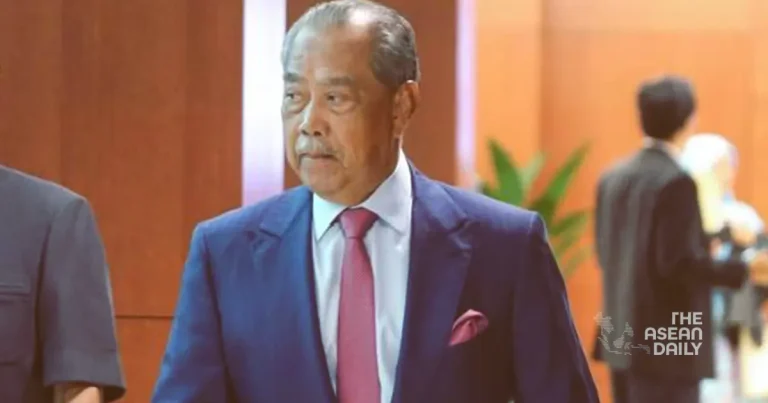27-8-2024 (KUALA LUMPUR) Former Prime Minister Tan Sri Muhyiddin Yassin has been formally charged with sedition at the Gua Musang Sessions Court in Kelantan. The charges, brought forth on Tuesday, 27 August, stem from controversial remarks allegedly made by Muhyiddin during a recent by-election campaign.
Muhyiddin, who currently serves as the chairman of the Perikatan Nasional coalition and president of the Bersatu party, entered a plea of not guilty when the charges were read before Judge Nik Mohd Tarmizie Nik Mohd Shukri. The case has drawn considerable attention, touching on sensitive issues surrounding race, religion, and royalty – often referred to as the ‘3R’ issues in Malaysian political discourse.
The charges relate to comments Muhyiddin reportedly made while campaigning for the Nenggiri state by-election. According to prosecutors, the former prime minister made seditious remarks concerning the process of appointing the prime minister following the 2022 general election. The specific incident in question occurred during a political rally at Felda Perasu on 15 August, where Muhyiddin appeared to question the decision of the 16th Yang di-Pertuan Agong (Malaysia’s head of state) to appoint Datuk Seri Anwar Ibrahim as prime minister after the 15th General Election.
The controversial speech, which was captured on video and subsequently went viral, has sparked outrage among various sections of Malaysian society. Reports indicate that at least 29 police complaints were lodged against Muhyiddin in the wake of the incident.
The charge against Muhyiddin has been framed under Section 4(1) of the Sedition Act, a colonial-era law that has been a subject of debate in recent years. If convicted, Muhyiddin could face a fine of up to RM5,000, a maximum of three years in prison, or both.
In his defence, Muhyiddin has maintained that his remarks were merely a statement of fact and that he had no intention of insulting the royal institution of Malay Rulers. He asserted that his campaign speech focused on factual events related to the formation of the government after the general election and the subsequent challenges faced by the public due to government policies.




